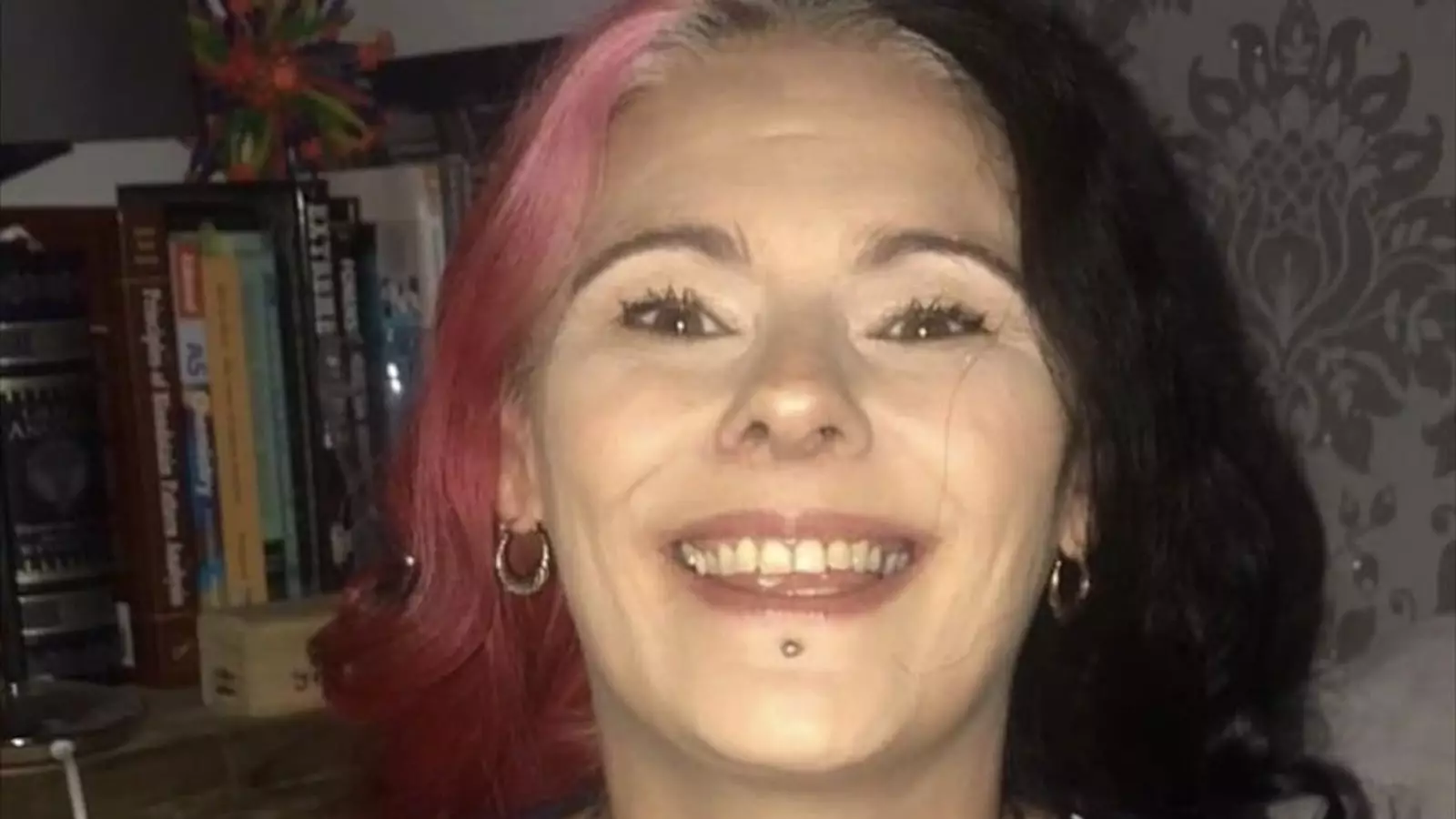The memory of Paula Parretti is preserved in a photograph where she radiates happiness, her vibrant, half-pink hair reflecting her playful spirit. Her sister, Sam Cook, fondly recalls Paula as the quintessential “fun aunt” who enriched the lives of her children through laughter, joy, and an endless supply of spirited toys. Yet, beneath this laughter lay a profound struggle, one that would culminate in Paula’s tragic passing in January 2022—a heartbreaking end to her hopes for recovery and recognition.
The contrast between Paula’s lively persona and the harrowing reality of her mental health struggles reveals the complexities of living with mental illness. In a striking account, Sam details the painful moment she found Paula in her flat, grasping the burden of that last, haunting image rather than the happier memories they once shared. The emotional turmoil escalated when Paula was discharged from the hospital amidst visible distress, an experience steeped in alarm and frustration. The lack of urgency displayed by medical staff, compounded by their insistence on discharging her regardless of her mental state, sheds light on a critical failure within the healthcare system—a failure that far too many families face.
Sam Cook’s testimony reveals more than personal grief; it exposes systemic issues within mental health care services in the UK. The Lampard Inquiry, which has recently commenced, investigates an alarming number of deaths among mental health patients in Essex—an investigation that is not merely a procedural formality, but a vital step towards understanding the failures that have led to these tragedies. The inquiry aims to address the deaths of over 2,000 patients from 2000 to 2023, questioning the adequacy of care and the protection that should be afforded to mentally ill patients.
The distressing experience of Paula at the Linden Centre illustrates the need for fundamental changes in how mental health patients are treated. Sam’s allegations of physical abuse, accompanied by the NHS Trust’s acknowledgment of fault, raises critical questions regarding accountability and oversight in mental health facilities. With patients often regarded as invisible or their issues minimized, it’s imperative to push for reforms that would ensure safe and compassionate care.
As Sam prepares to become a voice for her sister and others who have lost their lives due to neglect and mismanagement, her determination to advocate for change resonates deeply within the broader context of mental health discourse. In doing so, she not only seeks justice for Paula but aims to shed light on the experiences of countless individuals hindered by inadequate support systems and a general lack of understanding.
Through her advocacy, Sam underscores a critical message: individuals suffering from mental health issues are not defined solely by their illnesses. They are whole persons, complete with families, aspirations, and legacies of love and joy. There’s an urgent need for society to recognize the humanity of individuals facing mental distress, rejecting the stigma that often shadows them. Families like Sam’s serve as crucial reminders that mental health struggles can impact anyone, and they deserve recognition and care equal to any physical health issue.
In her conversations with others touched by similar traumas, Sam has become a vessel for voices that have long been silenced. Her online outreach has connected her with individuals nationwide who are sharing their frustrations and experiences with mental health services, revealing a widespread crisis that requires immediate attention. The common thread among these accounts is a feeling of being unheard—a distressing reality that jeopardizes not only recovery but life itself.
The narrative of Paula Parretti should not be an isolated story but a catalyst for change. Advocacy from families like Sam’s serves as a beacon in the fog surrounding mental health care, demanding accountability and compassion. The pursuit of reform in these services is not just a matter of policy; it speaks to the heart of ethical medical practice—a practice that emphasizes the need to listen and act upon the voices of those in distress.
People facing emotional turmoil deserve support that is not hindered by institutional barriers or systemic neglect. As the Lampard Inquiry unfolds, it can be hoped that it will not only provide answers but also ignite a comprehensive push toward reform, ensuring that no more families will endure the pain of losing a loved one due to inadequate care. It is time for society to step forward, embrace these voices, and create a more compassionate future for mental health treatment.



Leave a Reply